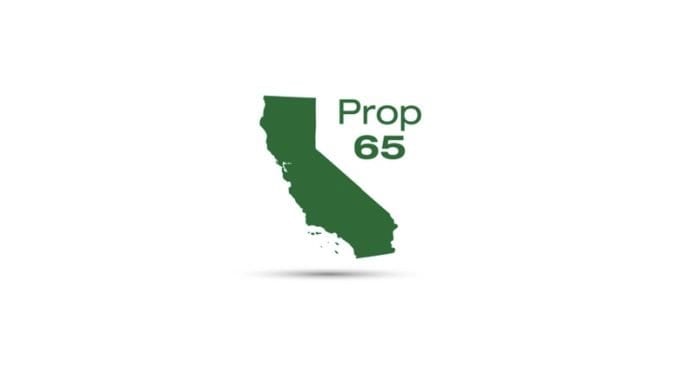
In March 2018, a California judge ruled that coffee bags must come with a cancer warning. Since then, talks about the dangers of acrylamide have frequently appeared in mainstream news. What does this mean for the future of coffee? We break it down.
BY ASHLEY RODRIGUEZ
BARISTA MAGAZINE ONLINE
You may have heard something about the recent ruling Los Angeles Superior Court Judge Elihu Berle made deciding that California-based coffee roasters must put a cancer warning on their coffee bags. The court case was covered widely on outlets like NPR, CNN, and The New York Times, with many journalists questioning if the ruling was an overstep or if its claims can be supported by existing science and research. The court case, which named a couple hundred different coffee roasters in California, has been raging since 2010—and isn’t over quite yet.
To understand what the lawsuit and the potential subsequent consequences for the coffee industry mean, we have to go back to the law that started it all: Proposition 65, also known as the Safe Drinking Water and Toxic Enforcement Act of 1986. This law was intended to let citizens of California make informed decisions about the foods and goods they consumed; it currently lists about 800 chemicals believed to cause cancer. Companies whose products have any of the chemicals found on the list are then required to put a warning on their product. If you’ve ever bought a product in the State of California that has come with a cancer warning, it’s because of Prop 65.
At this year’s Re:co Symposium, coffee professionals from all over California came together to hear James R. Coughlin, a food safety scientist and founder of Coughlin & Associates—a consultancy focused on issues of food research and safety—talk about the implications of the lawsuit. “First off, I want to say that coffee not only doesn’t cause cancer, but actually protects you from cancer,” he stated. Coughlin then went on to list a number of studies and findings reported by dozens of independent research organizations—he pointed out the International Agency for Research on Cancer states that “drinking coffee was not classifiable as to its carcinogenicity to humans.”
So where does the controversy stem from? That would be acrylamide, a chemical compound made in almost all foods that contain starches when you cook them above a certain temperature. In coffee, acrylamide is made during the Maillard reaction. Foods like french fries, chips, and pretty much anything that turns brown when you cook it has some level of acrylamide. Prop 65 has been used before on these foods and to sue the companies that sell them—and the folks pushing for these lawsuits have generally been successful, most famously in a lawsuit against Frito-Lay, Kettle Foods, and Lance Inc., which settled out of court for $3 million, with the companies required to reduce the amount of acrylamide in their foods in 2008.
Although coffee does contain acrylamide when roasted, it’s unclear how much constitutes a health risk. The American Cancer Society states, “based on the studies done so far, it’s not yet clear if acrylamide affects cancer risk in people.” Rats who have been fed acrylamide were more likely to develop cancer, but the amounts they were given were anywhere between 1,000 to 10,000 times more than what most people are exposed to, so it’s unclear if the amount of acrylamide in coffee can be connected to cancer. However, California sets the minimum allowable amount of acrylamide at 0.2 µg/day, a number which, according to Coughlin, “if you can measure the amount of acrylamide at all, it’s probably above the recommended amount.”
In most lawsuits, the persons who bring the case to court are charged with the burden of proof, or the responsibility to show that what they’re claiming is correct. (The standard to which they have to prove it depends on the circumstance; in criminal cases, for example, the burden of proof is set at “beyond a reasonable doubt,” while in civil court the bar can be set at “a preponderance of the evidence.”) However, in this case, it was the burden of the defendants (i.e., the collective coffee companies being sued) to prove that acrylamide in coffee posed no significant cancer risk. The judge found that the coffee companies did not prove this point, therefore giving the win to the plaintiffs.
This is not the end of this lawsuit. Although some of the coffee companies who were initially named have settled, and some are pre-empting the conditions of the lawsuit by putting up Prop 65 signs in their cafés (the language to which must include the phrase, “WARNING: This product contains a chemical known to the State of California to cause cancer”), there are no immediate steps any one coffee company needs to take. There may be an appeal, and the court still has to decide what is the proper recourse in this situation—do all these companies need to carry a warning? What does the warning have to look like? This is still yet to be decided.
There are a lot of theories as to why this lawsuit was even brought up in the first place. “It’s California idiocy at its finest,” states Heather Perry of Klatch Coffee Roasting. “The lawsuit is about a money grab to get companies large and small to settle and collect a bunch of money.” There are dozens of websites that talk about scams and the flaws in the Prop 65 language, and some protections have been put in place since the original bill was voted into law, mostly protecting small business owners. For now, all we can do is wait and see what the next couple of months of litigation look like, and perhaps hope that more science and research are done to show the positive health benefits of coffee.

